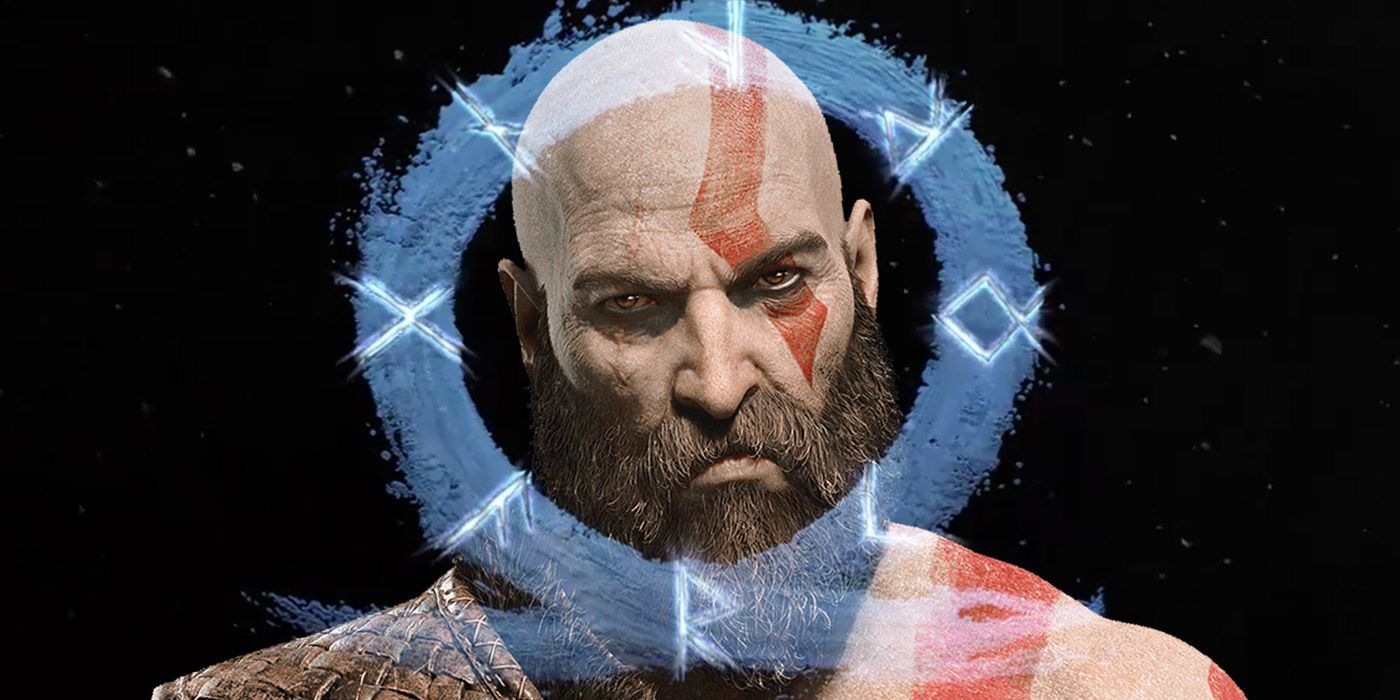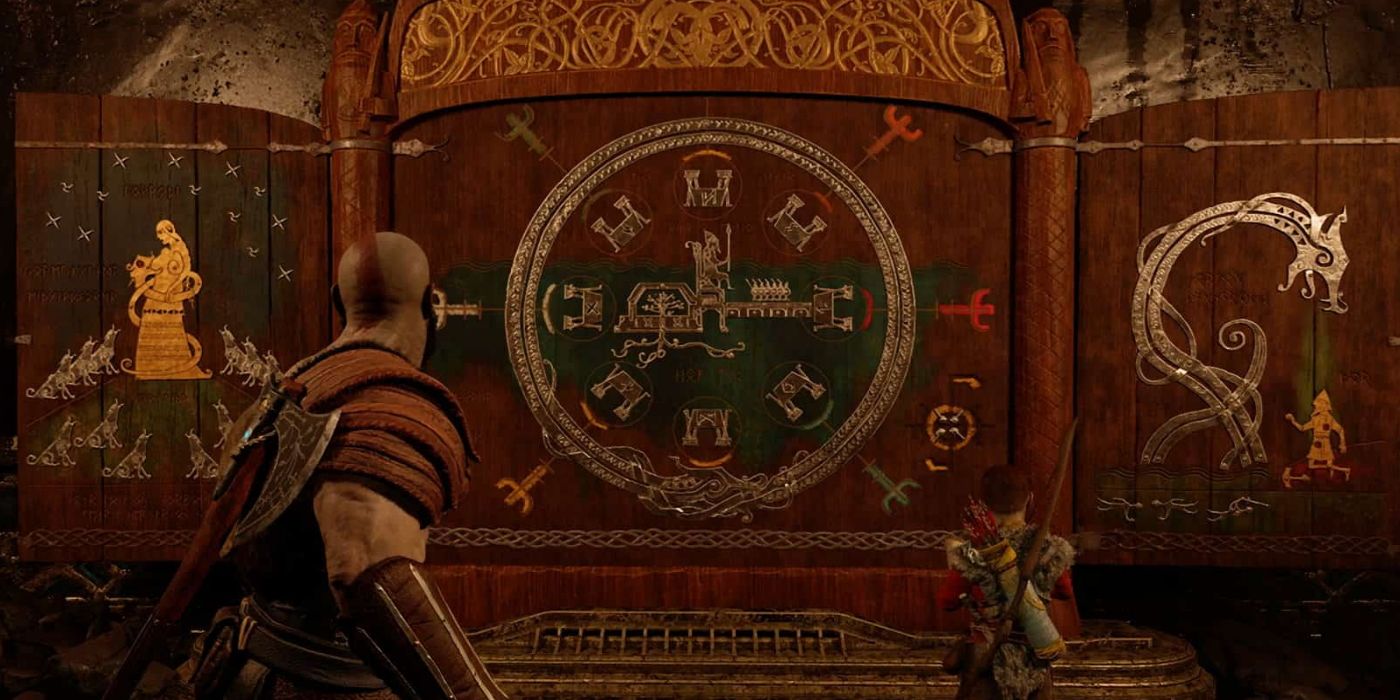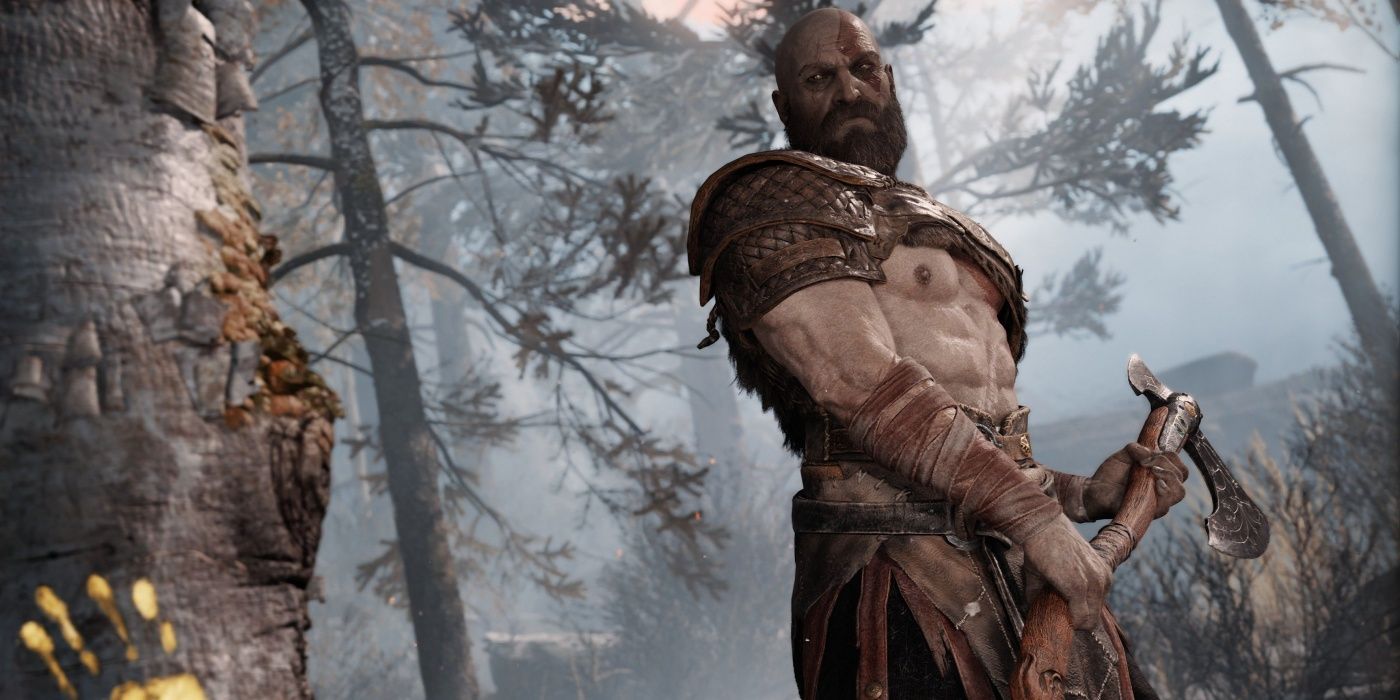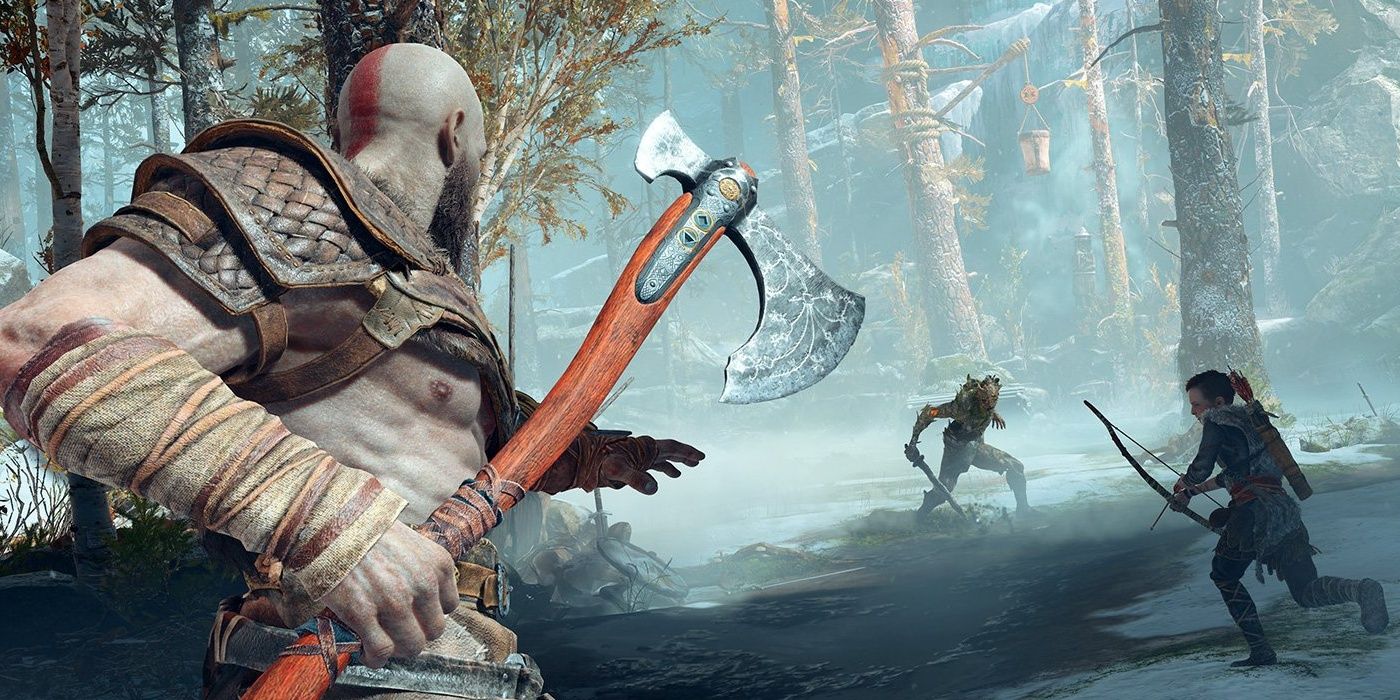The God of War series is no stranger to time travel. In God of War 2, Kratos took control of the Loom of Fate and sent himself backwards through time to the point that his father Zeus betrayed him.
There's plenty of evidence from the last God of War game that its upcoming Ragnarok sequel will also use time travel as part of its plot. As such, it wouldn't be surprising to see another time travel turn in the franchise, especially in order to fully explain lingering questions.
The Origins Of The World Serpent
The chronology of the last God of War game raised some big questions in light of its final twist. It is revealed at the end of the game that Kratos' son is in fact Loki, the Norse god of mischief. However, players have already met a character who is the son of Loki in Norse mythology - Jormungandr, the World Serpent.
In Norse mythology, Jormungandr is one of the children that Loki has with the Jotunn Angrboda, also known as the Mother of Monsters. She is also the mother of the wolf Fenrir, who is destined to devour Odin during Ragnarok. Fenrir is also mentioned by Mimir in 2018's God of War.
God of War makes plenty of changes to the myths. For example, while Baldur is weakened by Atreus' mistletoe arrows as a direct reference to Norse mythology, he is ultimately killed by Kratos, not Hod as in the myth. Some fans have taken this as evidence that God of War will simply not address Loki's mythological relationship with Fenrir and Jormungandr in its version of the story. However, there is direct evidence to the contrary in the last game.
A Jotunn shrine to Jormungandr can be found in the Vanaheim Tower in the Lake of Nine. The left side of the triptych shows the World Serpent being breastfed by Angrboda, the middle shows him encircling the Lake of Nine, and the right panel shows him poisoning Thor during Ragnarok. The left panel contains Elder Futhark runes which can be translated as "son of Loki and Angrboda. Brother of Fenrir, Hel, and the Iron-Wolves." This confirms that the World Serpent is considered Loki's child by the time Kratos and Atreus set off on their journey, as well as the existence of Loki's other children.
Splintering The Tree of Life
Explaining the World Serpent's origins relies upon one change the God of War version of Ragnarok does make from the mythology. In Norse mythology, Thor and the World Serpent battle to a stalemate in an earlier story, and are waiting to battle again during Ragnarok. During Ragnarok itself, Thor delivers the killing blow to Jormungandr, but ultimately succumbs to his poison.
In 2018's God of War, it is suggested that the World Serpent seen in-game has already experienced Ragnarok. Mimir elaborates: "it is said that when Jormungandr and Thor battle at Ragnarok, their clash so violently shakes the tree of life that it splinters, casting the serpent backward through time, even before his own birth." Freya also says that the World Serpent appeared one day without explanation, causing Thor to try and fail to defeat him and supporting the idea that Jormungandr was sent backwards through time.
Presumably God of War's Thor sends the younger Jormungandr back in time, but is then poisoned by the older World Serpent after mortally wounding him. As is often the case, Mimir sums it up best, explaining that the World Serpent and Thor "have a bit of an unpleasant history between them... or they will, anyway."
Time Travel In God Of War's Ragnarok
When Atreus later asks Mimir for details about his conversation with the World Serpent, Mimir also says that Atreus "seemed familiar to him." All of this evidence of time travel raises a few possibilities. First, it is possible that the next God of War will see linear time progress without any time travel from Kratos or Atreus' perspective. Atreus might father Jormungandr at an older age, and that Jormungandr might then be the one that is sent back in time during Ragnarok to appear in the Lake of Nine.
The fact that Fenrir is already confirmed to exist by the time of God of War makes another situation seem more likely. It is possible that the next game will begin with Ragnarok itself, and that Atreus and most likely Kratos will also be sent backward through time when the tree of life is splintered. Then, Atreus would have time to age before Ragnarok, and father Fenrir, Jormungandr, and his other children with Angrboda. It seems likely that this version of Atreus would then be imprisoned like Loki is in the myths, only to escape from his prison when Ragnarok begins.
It's also possible that all of the Jotnar are sent back in time by the splintering of the tree of life, with the splintered branch perhaps being the one connected to their realm. This might explain why the Jotnar have knowledge of the future and Ragnarok to begin with, while the Aesir and Vanir do not. There are also thematic reasons God of War's Ragnarok sequel may want to deal with the characters encountering a time loop.
2018's God of War focused on Kratos' inability to change his own past and his struggle to stop himself and his son repeating the past. While God of War 2's time travel plot merely allowed Kratos to survive death and return to take revenge, a time travel plot in God of War's Ragnarok sequel would explain how the Ragnarok prophecy came to be to begin with. If Kratos finds some way to break the cycle when he approaches Ragnarok for the second time, it could represent him finally being able to break out of the cycle of violence and revenge he's been caught in since the first game.
The sequel to God of War is currently in development for PS4 and PS5.




